Samsung brings out the human side of its televisions
Puts search at the centre of the TV experience
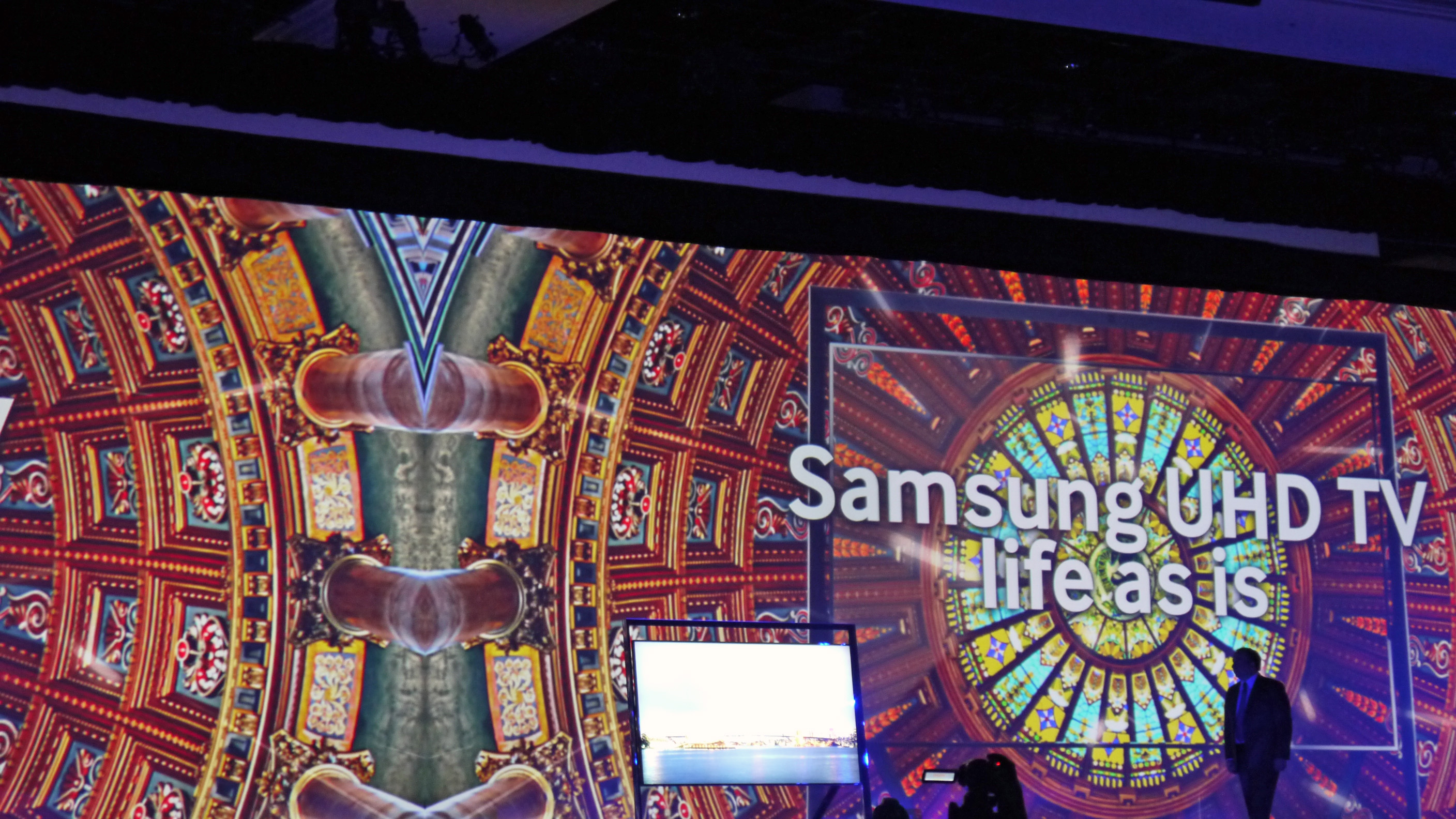
Samsung is always the most popular press conference, and its CES 2013 one was no different. Journalists eager to sample the company's new wares were queuing hours before the event began – with promise of new TVs smart enough to derail Apple if it ever actually released its own television.
As predicted the conference was packed with television news. It was like Samsung had a checklist of new technology and wanted to make sure there was a tick in every box. OLED, UHD TV, LED TV... all of these were given upgrades but it was the software (or rather the potential of the software) that took centre stage.
The main software upgrade is something called S-Recommendation. New to the 2013 lineup, it allows users to talk to their TVs and request movies and shows but also ask for recommendations. Recommendation engines are nothing new, but this human-like interaction with your TV is what Samsung hopes will make its technology a true panel beater.
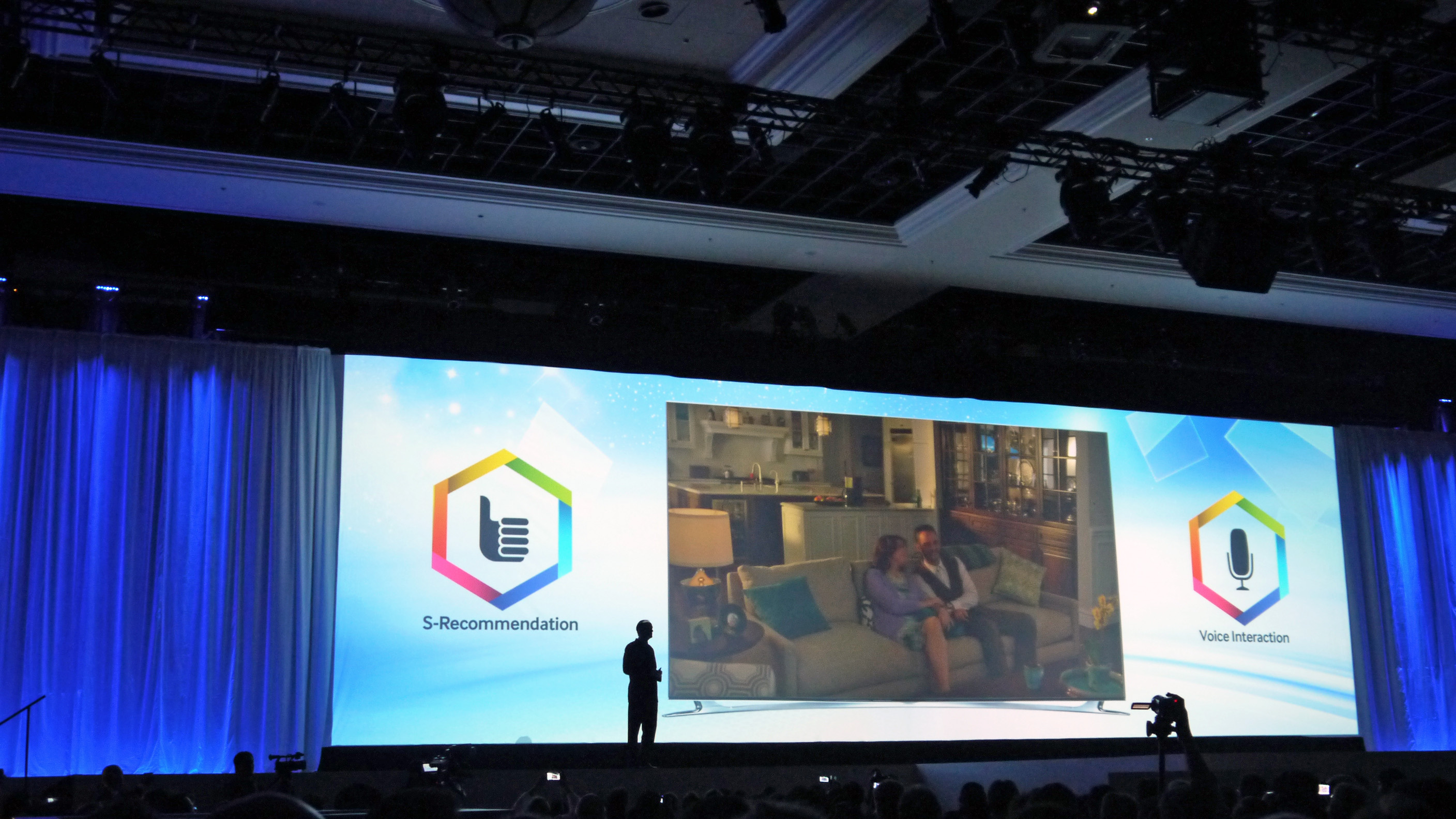
As BK Yoon, Samsung's president for visual display, explained in his keynote: "We see technology in human tones. We are relentless in our pursuit of this. We understand consumers in there lives and through this we can predict trends. This year, our aim is to help people discover a world of possibilities. Not what they expect but what they have never dreamed possible."
Tim Baxter, president US of Samsung, complimented Yoon's human-focused speech saying that the company's latest television updates "will change the way we watch TV forever."
One way Samsung hopes to do this is with its revised Smart Hub. Given a new look that "will let you interact with your TV like you would a tablet" the hub comes with swipeable pages, which feature Samsung TV apps, games, and social features. The search has been overhauled as well, so you only have one screen to navigate to for searching.
Much like its new S-Recommendation feature, Samsung seems to be making predictions surrounding what consumers really want from a smart TV – or, to put it another way, the sort of features we would see in an Apple-based television.
Get daily insight, inspiration and deals in your inbox
Sign up for breaking news, reviews, opinion, top tech deals, and more.
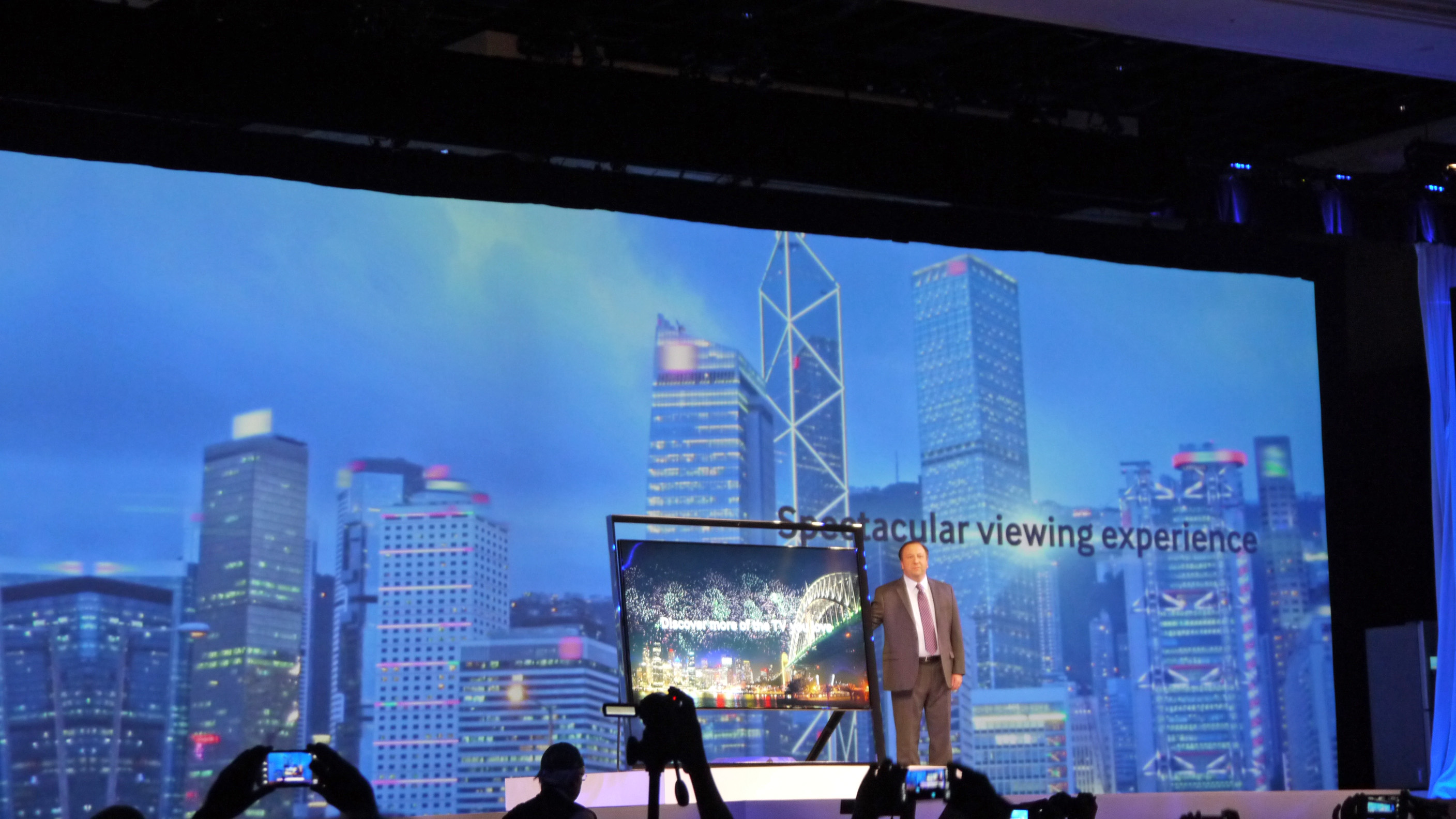
Simplification is, of course, key to what Apple may bring to the TV market and this ethos can be seen in the new simplified Smart Hub. This is the third iteration of Samsung's online television portal and first impressions is that it is definitely the best.
"The content market is accelerating," said KP Yoon. "We have developed TVs that respond to people's needs. TVs that can predict what people want to watch."
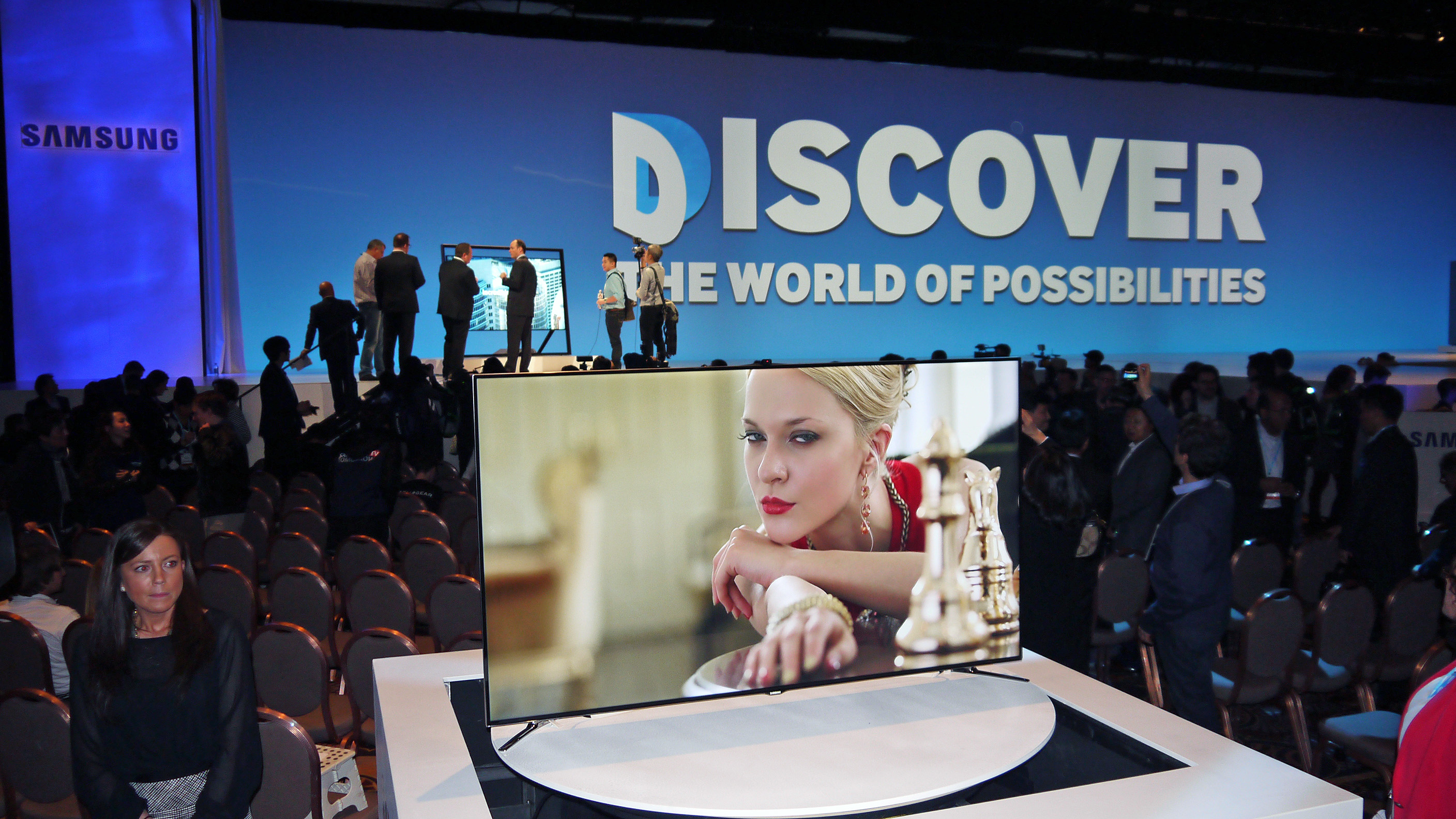
As well as updating its online services, Samsung refreshed its OLED TV line up with the Samsung N55F9500. Considering its first OLED TV hasn't actually made it to market, this new version brings with it multi-view.
This is the ability to watch two things simultaneously on a television, in Full HD, through the magic of active glasses splitting the image two ways. These glassed come with speakers so you can also hear what's on your preferred channel.
Sound familiar? Well, it should as it is something LG has offered with its TVs for a while now, but it's great that it has come to OLED.
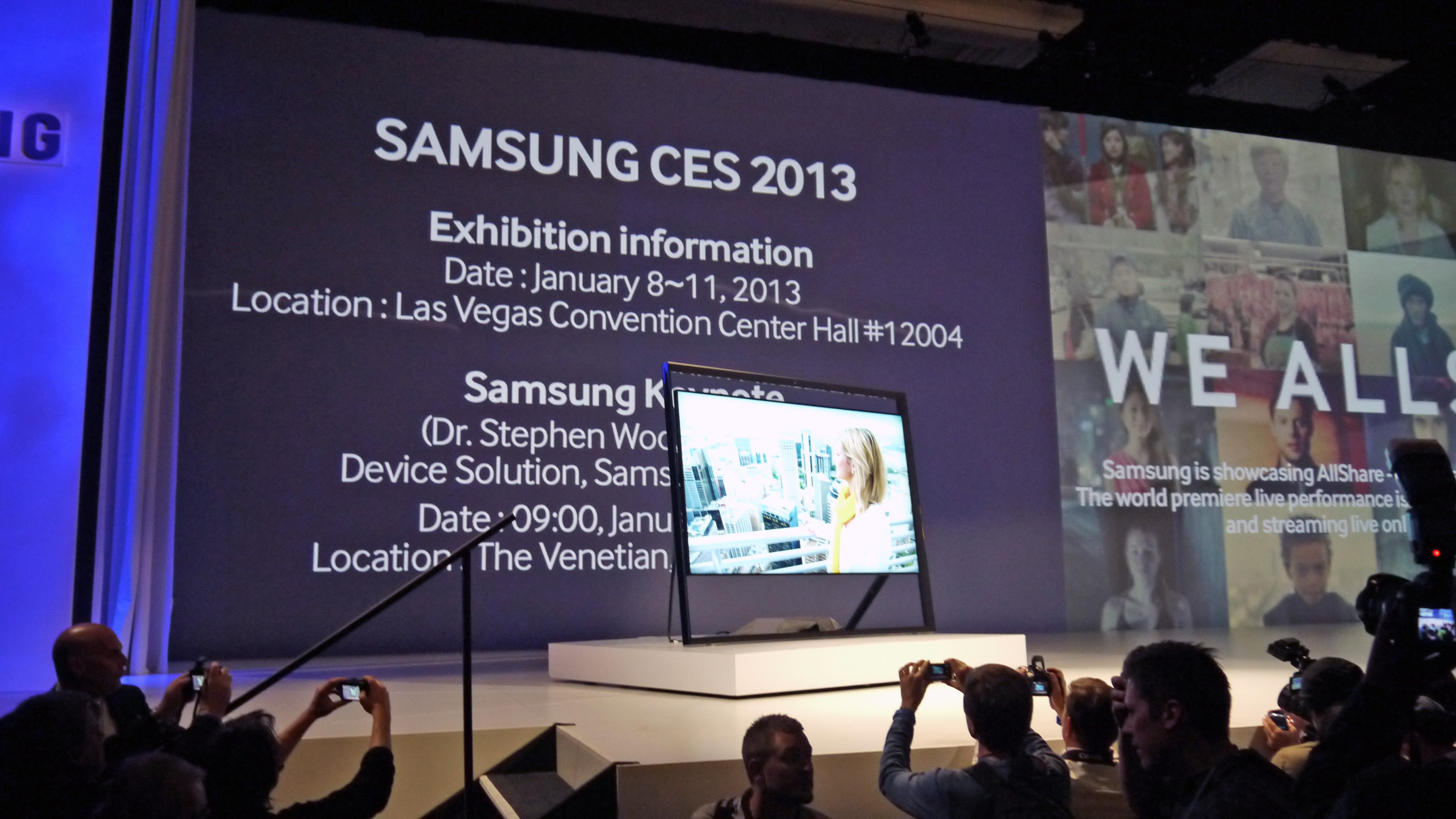
Sony's LED range has also been given a quad-core chip boost. The top of the crop of this is the Samsung LED F8000. But, if you have invested in the 2012 Samsung TV range then don't panic as it has also brought the evolution chip upgrade out. Stick this into last year's range and you get the new Smart Hub and all the new features shown off at CES 2013.
Samsung saved its best (and biggest) TV for last, the Samsung S9 UHD TV. This 4K packing set comes in an intriguing new frame, which is packed with a 2.2 channel audio system and will be available in 85-inch and 110-inch flavours. Leaning back like an artist's easel, the television looks stunning but the design may not be for everyone.
Marc Chacksfield is the Editor In Chief, Shortlist.com at DC Thomson. He started out life as a movie writer for numerous (now defunct) magazines and soon found himself online - editing a gaggle of gadget sites, including TechRadar, Digital Camera World and Tom's Guide UK. At Shortlist you'll find him mostly writing about movies and tech, so no change there then.
